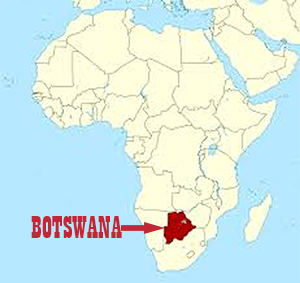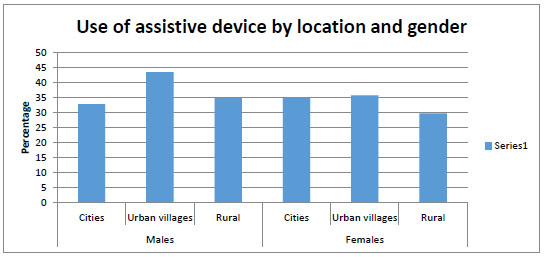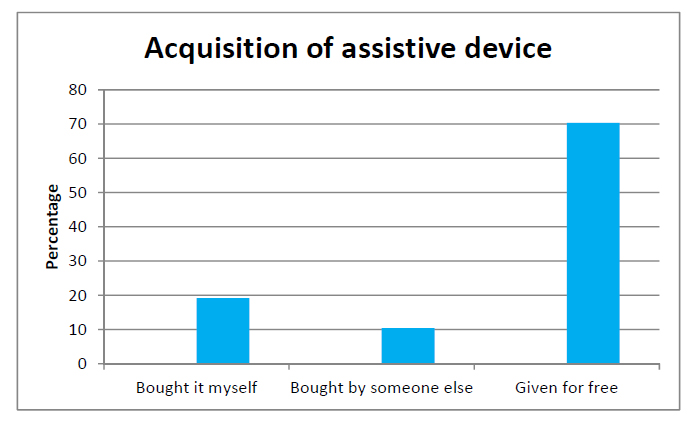 In
Botswana, the Southern Africa Federation of the Disabled (SAFOD)
works with its national affiliate, the
Botswana Federation of the Disabled (BOFOD) is the national
affiliate of SAFOD which coordinates all activities through its member
DPOs in Botswana. BOFOD is a membership umbrella organization of
Disability Peoples Organizations (DPOs) or organizations of persons with
disabilities in Botswana to provide unified voice of all people with
disabilities.
In
Botswana, the Southern Africa Federation of the Disabled (SAFOD)
works with its national affiliate, the
Botswana Federation of the Disabled (BOFOD) is the national
affiliate of SAFOD which coordinates all activities through its member
DPOs in Botswana. BOFOD is a membership umbrella organization of
Disability Peoples Organizations (DPOs) or organizations of persons with
disabilities in Botswana to provide unified voice of all people with
disabilities.
Botswana is the only country in Southern
Africa that is yet to ratify the
Convention on the Rights of Persons with Disabilities (UNCRPD) as of
the date this article was published. A significant amount of work still
must be done by the Government of Botswana to ensure the creation of an
inclusive society for persons with disability as far as legislation is
concerned. Again, as of the date this article was published, there was
no progressive law in Botswana (i.e. an Act of Parliament) that is
aligned to the international standards. A disability policy had been
drafted and brought to Parliament at its very last sitting, but it had
not seen the light of the day.
The disability movement has been trying to
advocate for both the ratification of the UNCRPD as well as enactment of
the relevant national laws, but the DPOs – including BOFOD – require
external capacity-building (through both training in advocacy and
resources) to enable them to effectively sustain strategic advocacy
work.
SAFOD and Botswana's work related to Assistive Technologies did not start with the AT-Info-Map project. AT was one of the important components in the surveys on Living Conditions among People with Activity Limitations in Developing Countries so far carried out in nine of the SAFOD's ten countries in Southern Africa. These surveys were part of SAFOD's regional initiative to establish baseline data on living conditions among people with disabilities in Southern Africa, coordinated by the SINTEF, on behalf of the Norwegian Federation of Organizations of Disabled Persons (FFO) and SAFOD.
In Botswana the survey started in 2011 and was finalized in 2014, and the report was lunched on November 2016. In this survey , the assistive devices were categorized under information; communication; personal mobility; household items; personal care & protection; for handling products & goods; computer assistive, technology; and other devices.
The survey found that a total of 36.4% (348) use an assistive device, and that the use of assistive devices is slightly higher in urban than in rural areas, with males in Urban villages scoring particularly high. The difference between locations is however not statistically significant. More males than females report using an assistive device (39% and 33.5% respectively).

The assistive devices for personal mobility dominate completely with over 90% of those who confirm that they use an assistive device being in this category. Second is information devices with 15.2% and third communication with 5.3%.
The most important source of assistive device in Botswana is Government health services (45.9%), followed by private sources (19.4%). More than half (54.5%) obtained the device from Government services, while private/NGOs together was reported by 28.1%).
The large majority (70.4%) state that they were given the assistive device for free, while 19.2% had bought the device themselves while in 10.4% of the cases someone else bought the device for the person with disability.

A total of 66.7% of the mobility devices and 61.9% of the sensory devices were stated to be in good working condition.
The most common answer to the question about maintenance is that the device is not maintained (40.0%). This is followed by Government (22.4%), self (18.7%), and family (9.4%).
SAFOD will continue to update this page with any new interesting information related to the AT situation in the country, or if you are a disability focused organization that has worked in Angola, an independent researcher with any useful information about the AT situation the country, SAFOD would love to hear from you should you be willing to share whatever related information you may happen to possess. Please contact us here